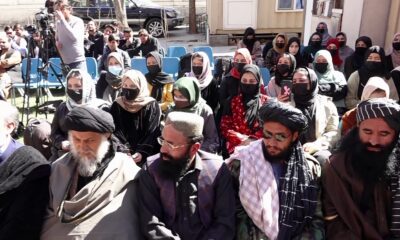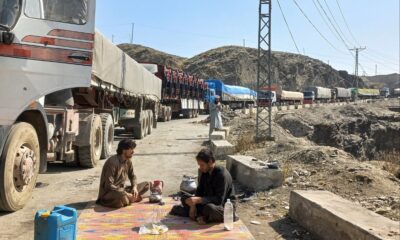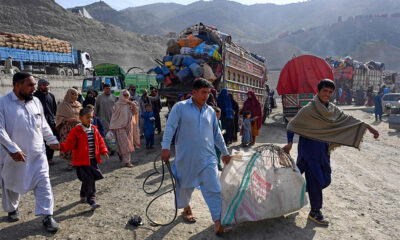Latest News
Turkey should pull troops from Afghanistan under 2020 accord: Taliban spokesman
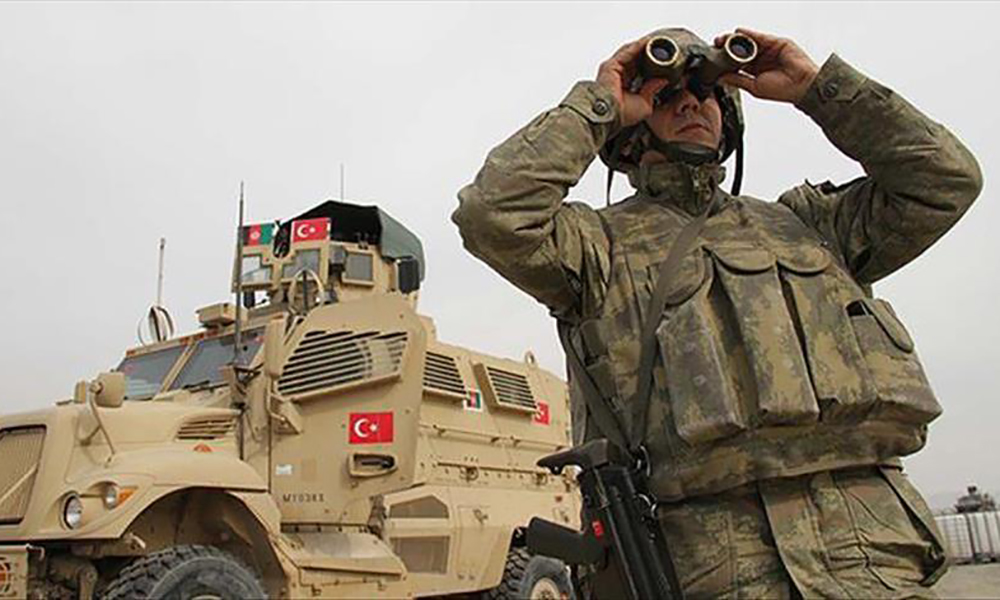
Turkey should withdraw its troops from Afghanistan under the 2020 deal for the pullout of U.S. forces, a Taliban spokesman said on Thursday, effectively rejecting Ankara’s proposal to guard and run Kabul’s airport after U.S.-led NATO forces depart.
The development raises serious questions for the United States, other countries and international organizations with missions in Kabul about how to securely evacuate their personnel from landlocked Afghanistan should fighting threaten the capital.
It also appeared to dash Ankara’s hopes of using the securing of Kabul airport to help improve ties with Washington – strained by Turkey’s purchase of Russian defense systems – in talks set for Monday between President Joe Biden and Turkish President Tayyip Erdogan
Asked in a text message whether the Taliban rejected Turkey’s proposal to keep forces in Kabul to guard and run the international airport after other foreign troops leave, the Taliban spokesman in Doha responded that they should go as well.
“Turkey was part of NATO forces in the past 20 years, so as such, they should withdraw from Afghanistan on the basis of the Agreement we signed with US on 29th Feb 2020,” Suhail Shaheen told Reuters.
“Otherwise, Turkey is a great Islamic country. Afghanistan has had historical relations with it. We hope to have close and good relations with them as a new Islamic government is established in the country in future,” he added.
The State Department and the Turkish Foreign Ministry did not immediately respond to requests for comment.
U.S. Defense Secretary Lloyd Austin spoke on Thursday with Turkish Defense Minister Hulusi Akar to “discuss bilateral cooperation and regional issues,” the Pentagon said in a statement, which did not specifically mention Afghanistan.
Under the February 2020 deal secured with the Islamist Taliban under former President Donald Trump, all U.S. forces were to be out of Afghanistan by May 1.
But Biden said in April that the pullout would be completed by the 20th anniversary of the Sept. 11, 2001, al Qaeda attacks on the United States that prompted the U.S.-led invasion and ouster of the Taliban government that sheltered the group.
Turkish officials say they made the Kabul airport proposal at a NATO meeting in May when the United States and its partners agreed to a plan to withdraw their forces by Sept. 11 after 20 years of backing the Afghan government in a war against the Taliban.
With violence raging, many U.S. lawmakers and current and former officials fear the departure of the foreign forces and stalled peace talks are pushing Afghanistan into an all-out civil war that could return the Taliban to power.
The Pentagon says the U.S. withdrawal is more than 50% complete. Turkey, with more than 500 soldiers still in Afghanistan training security forces, now has the largest foreign military contingent there.
Australia closed its embassy last month because of security concerns. The Taliban’s effective rejection of the Turkish plan to secure the airport could prompt other countries to shutter their missions.
The development also poses a quandary for the Biden administration, with Secretary of State Antony Blinken vowing as recently as this week at a congressional hearing to maintain a U.S. diplomatic presence in Kabul.
Latest News
National Journalists Day sparks reaction from Afghanistan’s media workers

Marking Afghanistan’s National Journalists Day on Monday, journalists around the country raised concerns over the lack of access to information and the media restrictions they face.
One journalist, Heela Mohmand, said: “In addition to the fact that restrictions have increased, there are other problems. Women should be attended to. Many sisters and mothers are journalists, and they are facing many problems. I am also unemployed.”
Meena Habib, another journalist, said: “Some have lost their income and many have great problems due to the lack of access to information. We journalists still cannot obtain accurate information. Many spokespersons refuse to provide information to women. In many cases, when they find out that a woman is calling them, they don’t answer.”
Media advocacy groups consider the right to access accurate and timely information important in the field of reporting. These groups also called better working conditions for journalists in the country.
“This year, compared to last year, the number of female journalists has increased. Currently, 745 female journalists are working in the media. Last year, their number was 601,” said Hujjatullah Mujaddidi, head of the Afghan Independent Journalists Union.
The Ministry of Information and Culture emphasized that the current situation is favorable for the media and that the ministry is committed to supporting the media in various areas. The ministry also called on the media to continue their activities based on Islamic principles and national values.
Khubaib Ghufran, spokesman for the Ministry of Information and Culture, said: “Since the Ministry of Information and Culture is a support authority for journalists and the media, it ensures that it supports the country’s journalists in any area they face problems and in case they need anything, whether in the field of access to information or in the field of financial support to address their problems, for which work is underway to create a mechanism. Similarly, if journalists have a complaint, it will be addressed by the Media Violations Commission.”
Currently, 470 media outlets are operating in the country, including 84 television stations, 273 radio stations, 57 news agencies, and 52 print media outlets. 745 female journalists work in these media outlets.
Latest News
IEA urges neighboring countries to stop forced expulsions of Afghan refugees
Recently, Gandapur said the state and its institutions were responsible for the surge in militancy in KP.
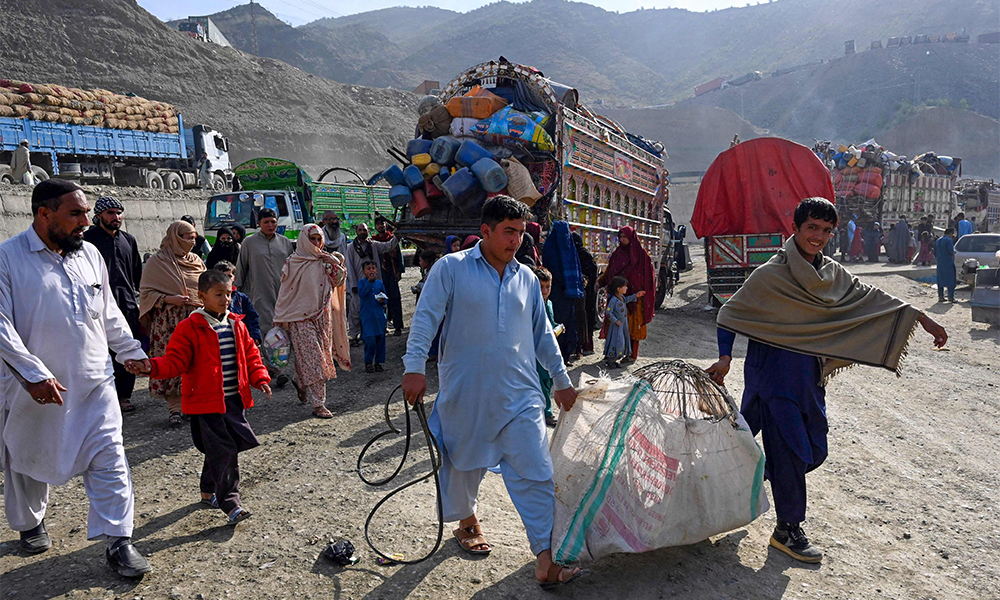
At a recent meeting of the Commission to Address Refugee Problems, Afghanistan’s Deputy Prime Minister Abdul Salam Hanafi stressed that neighboring countries must stop forcibly expelling Afghan refugees.
Participants at the meeting addressed issues concerning the welfare of refugees, including the resolution of ongoing challenges they face, the facilitation of Afghan businessmen, and the prevention of forced deportations. They highlighted the pressing need for collaborative efforts to protect the rights and dignity of those displaced. Additionally, they called on international organizations for their assistance to effectively manage the refugee crisis and improve living conditions for Afghan nationals abroad. Meanwhile, Ali Amin Gandapur, Chief Minister of Khyber Pakhtunkhwa province, stated on Sunday that his government would decide whether to follow Islamabad’s directives to expel Afghans residing in the province after March 31.
The federal government has asked Afghan Citizen Card holders to leave Pakistan voluntarily by March end, after which they’d be deported from the country.
But Gandapur slammed the federal government’s repatriation policy as “inhumane and oppressive”.
“I am not in favour of Afghans’ repatriation as per the policy of the federal government,” he said.
Gandapur said he, as the chief executive of KP, would decide whether Afghans should be forcefully repatriated or not by March 31, Dawn news reported. “I will decide what suits me, suits the culture and traditions of KP,” he said.
He said it was “wrong and inhuman” to forcefully send back Afghans without any arrangement for them in their country.
The forced repatriation of Afghans at a time when they had no facility in their country was a “violation of basic human rights”.
Gandapur also said the federal government had not contacted him on this issue and that he had been criticised when he suggested negotiations with Afghanistan, Dawn news reported.
Recently, Gandapur said the state and its institutions were responsible for the surge in militancy in KP.
Latest News
Muttaqi: IEA won’t fight against one country to satisfy another
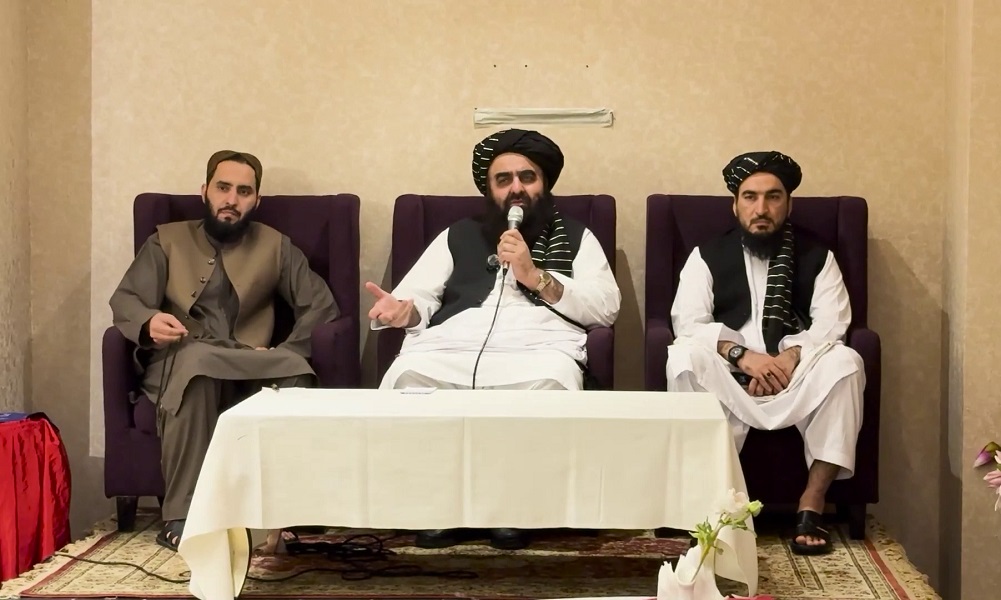
-
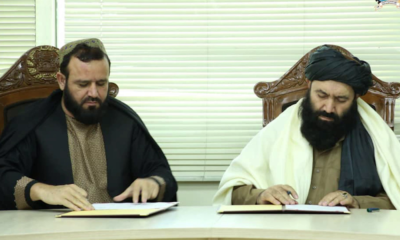
 Latest News4 days ago
Latest News4 days agoMoRRD signs deal for Wakhan road construction
-
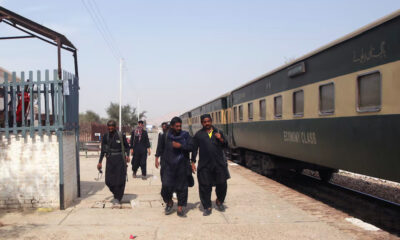
 Regional5 days ago
Regional5 days agoPakistan military ends train standoff, says 21 hostages and four troops killed
-

 International Sports5 days ago
International Sports5 days agoBayern’s Harry Kane sets his sights on lifting FIFA Club World Cup trophy
-

 Latest News5 days ago
Latest News5 days agoPakistan Army claims Balochistan train attack orchestrated from Afghanistan
-
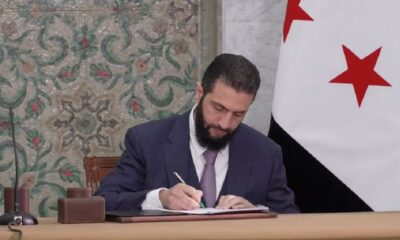
 Regional4 days ago
Regional4 days agoSyria keeps role for Islamic law in 5-year transition
-
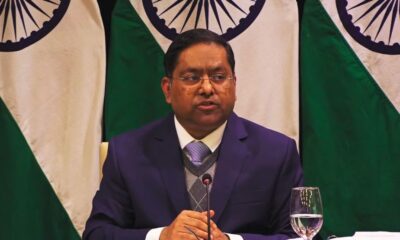
 Latest News4 days ago
Latest News4 days agoIndia: Pakistan should not blame others for its own failures
-

 Regional4 days ago
Regional4 days agoBlast in northwestern Pakistan mosque injures local Islamist party leader, three others
-
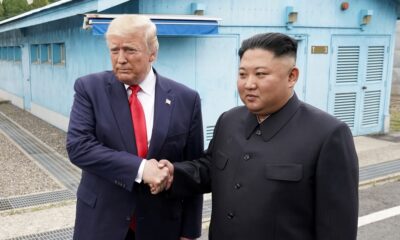
 World4 days ago
World4 days agoTrump says he still has good relations with leader of ‘nuclear power’ North Korea




